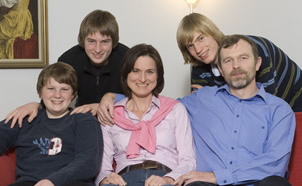Countries that invest in
to make it easier to have and
children tend to have higher fertility rates than those that don't. The
examples are France and Sweden.

France has always had a strong family
. Women
their first child get a paid and job-protected maternity
of 16 weeks as well as a palette of
to help out with everything from education to housing and transportation; the
increase steeply for the third child. Partly as a result of
like these, France had a net natural
in population last year of 211,000, while the E.U. as a
only had a net natural
of 200,000, not including
.
Mothers in Sweden can take 15 months
work, most of it at 80%
, to
for the baby.Fathers can stay home one day a week to help
. They too get 80%
from the state for the day spent with their children. Parents can look
to increasing child
- from €105 per month for the first child to €190 for No. 4. For a mother it also
to know that her job will be waiting for her when she returns to the
.She is not
against because she
children.
Europe, women say they would like to have more children than they do. One way to make that possible is to
that the goals of
and parenthood are
. That seems to have been
in places like Sweden, where women's
in the labor force is high and so is fertility. It's an expensive
- critics might call it a parenthood
- since the government pays for maternity and
leave, health care and education benefits. And it's a level of social
some say Europe can no longer
. But the alternative - too few young people to take
of the old - may be even costlier.